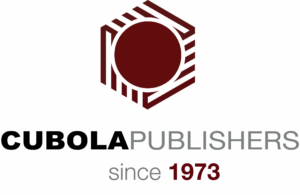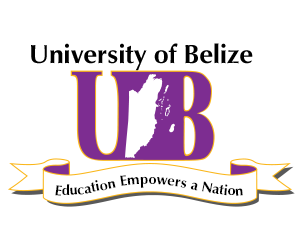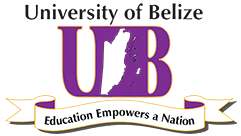- Version
- Download 434
- File Size 642.76 KB
- File Count 1
- Create Date January 29, 2018
- Last Updated January 30, 2018
UB Imprint Vol 04: Research, Development and Innovation (RDI) at UB and in Belize – some reflections (Part 1)
Research, Development and Innovation (RDI) at UB and in Belize – some reflections (Part 1)
1. Acknowledgments
I wish to begin by thanking the Chair of the Biology and Chemistry Program, Ms. Karen Waight for organizing this Symposium with the support of the Dean, Faculty of Science and Technology, Ms. Julianne Pasos.
2. The Nexus between Teaching and Research
The theme of the Symposium is very apt “Promoting Science Education Through Research” as the University of Belize, still a very young institution, strives for a higher level of achievement and impact on Belizean society. Showcasing the creative work of our students and academics and engaging our internal and especially our external stakeholders are exemplary, especially if the UB is to nurture future support from them so as to advance its Mission and Vision as a teaching, research and service oriented University.
I have always had a great belief in the synergistic nature of teaching and research. Without one or the other, the University and its environment will be a poorer place. Teaching facilitates the transfer of knowledge, skills, awareness and understanding while research facilitates enquiry, knowledge creation, problem solving, communication and innovation. When combined, the classrooms, libraries, laboratories and open spaces of the University become a place for critical and creative thinking and the University, as a whole becomes an exciting scholarly environment, filled with opportunities for advancing the prospects of our young graduates as well as advancing the cause of society. The University truly becomes a leader of thought in our society. I wish to use this opportunity to share some thoughts with you students and staff on strengthening our abilities in problem solving, research and innovation based upon my own experiences, and going forward to building a culture of Research and Innovation. Let me say that as an academic and an Engineer, I have always felt that Engineers as well as Scientists and Technologists can change the world we live in and that every product, process, system or policy that we use can be made better or improved; that people, businesses/institutions and country must be willing and able to create and innovate, especially if they are going to compete and create better societies.
3. On the Joys of Research
In my long career in academia, the solution to problems, especially in the areas of food and agriculture, has brought considerable joy. I still remember the day, when as a young student, and after months of deep, sustained thinking, one where the problem you are trying to solve, reverberates even as you sleep, I was able to find a way to “extract the kernel from the shell of split, dehusked coconuts”. Through this and subsequent experiences, I understand fully the meaning of the Greek work “Eureka – I have found it”. Communicating your research findings while engaging your audience is a great feeling as a researcher/scholar as it demonstrates your knowledge and command of the subject investigated, possibly like no other. A feeling of being at the top of your world of expertise! Trying to publish your research in a top ranked Research Journal, after rigorous peer review, and hearing of its acceptance are also wonderful moments in the life of an academic and through this the recognition that comes in the global world of academia. There are no boundaries here, and one global standard. I do hope that all of you students and staff will one day experience this joyous feeling, possibly several times if you embark on a scholarly career, in academia, in research. Both UB, Belize and the Caribbean need you to embark on such a journey of enquiry, discovery, application and scholarship as well as teaching. Get to the Ph.D. level as quickly as you can and join us as Faculty. This is how we will build a strong UB and a competitive Belize especially through Science & technology & Engineering.
4. The Ingredient for Success in Research
But what are the ingredients for success in research in academia? My own experiences suggest the following, viz:-
(i) An inward hunger to find solutions to the problems around us, to create a better world for all of us.
(ii) The ability to persevere with a problem; to absorb it into one’s consciousness, living it, day in, day out.
(iii) The ability to take risks and not to be unduly concerned about failure.
(iv) Thinking deeply and critically about the problem, its definition and of possible solutions; but steadily revising and putting one’s mind into a frame of mind, that can yield solutions. We call this “Imagineering”.
I have been telling my colleagues here at UB that success in academia requires a 24 hour work day! As we say “burning the candle”, day and night. You are a student of learning, forever. I joined the academic world at the UWI as it provided a freedom like no other – a place to pursue my goals, small as they may be, to build a better place in the Caribbean especially for Food/Agriculture and the noble work of our farmers and now, building our Institutions like the UB. My students, where else can you pursue your own dreams with freedom? The University is one such place. Think about this.
5. Bolstering Creativity and Problem Solving
The solution to a problem is often difficult because a clear definition of the problem may not have been established. This is the first step to achieve success. I refer to the earlier comment on my work with respect to “extracting the meat from the shell of the coconut”. The use of the word “extracting” rather than “digging” in the problem definition, was the key to my success in finding a solution, and I will elaborate on this at another time but “digging” maybe a solution while “extracting” is the problem.
An additional initial step in problem solving, in research and innovation, is to use information and existing knowledge. Information in facilitating the definition of a problem, as well as the recognition of technological possibilities/solutions. Bringing these two together can lead to problem solving or an innovative solution. That is why, as a Supervisor of both undergraduate and graduate students, I have often emphasized to them to read, review and delve into the subject matter. The “Literature Review” that we all engage in at the start of any Research Project, must not be seen as a mere ritual, but an attempt to gather information to better define a problem while also thinking of its solution. The process is all very iterative and very circular in nature. We often do not have to “reinvent a wheel” as the saying goes, but sometimes “to reconfigure it”. Use existing knowledge and build upon it as a first step to be creative. So when my research students are struggling to find answers, I tell them “read, read, read” – Get into the books and journals in the subject as these can take you out of your academic stress and point to solutions.
But let me share three further thoughts with you on research, on problem solving and on innovation.
The first is about using analogies to finding solutions to problems. In the non-scientific/technical world, we often use the term “best practices” as guides. In “Imagineering” let your mind soar, thinking of similar problem situations and their solutions; often the basis of an answer lies therein. This is also facilitated by reading and knowledge acquired through earlier academic training for example. I can speak of my own experience of trying to find a mechanical solution to the shelling of nutmegs and delving into how the shelling of other agriculture crops was achieved.
The second thought is that problem solving and research usually involve the use of all your thinking skills – critical (evaluation and challenging) creative (imaginative), reflection (looking back) and logical (deduction). Cultivate these to achieve success. The third and final thought on problem solving is the notion of “happenstance”, or a circumstance that facilitates a solution – one that occurs and is due to good luck or chance. This has often been cited in the literature as a means through which problems are solved or ideas generated. Well my own experience suggests that this does not really happen altogether by chance; the timing and place of occurrence may appear so, but the conditions which allow for this have been the deep cultivation of the mind on the problem at hand, one that is sub-consciously alert and hence the ability to spot a solution (perceptiveness) even while engaged in another activity. This, which may be in another research project for example. So be alert while pursuing your research.





